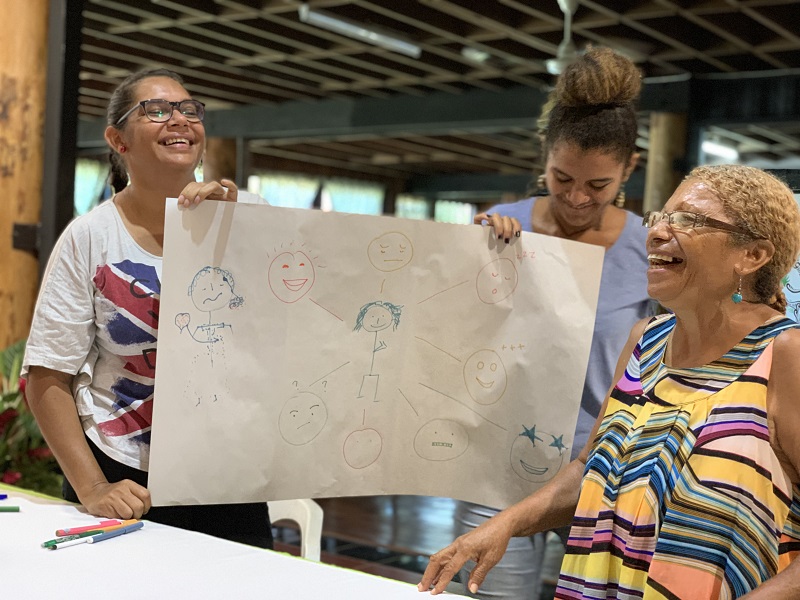To dismantle the barriers holding women back from economic participation, we must challenge existing paradigms, embrace innovation, and create opportunities designed for and by women. We’re committed to making women’s economic equality a reality, and we invite you to partner with us to create a future where all women can experience economic equality in their everyday lives.

“I refuse to accept the idea that we can simply shoehorn women into a global economy that is exploiting them and then celebrate it as women’s economic empowerment.”
— Winnie Byanyima, Former Executive Director, Oxfam International
The importance of women’s economic equality
The significance of gender equity in economic development is widely acknowledged [see right], but the pace and depth of change have been inadequate. If we continue on this trajectory, it will take centuries to achieve real equality.
Part of the problem lies in attempting to fit women into an economic system that wasn’t designed with their needs in mind. As Vicky Saunders rightly observes, we can’t just “add women and stir” and expect a more equitable outcome.
Unlocking women’s economic potential
Across the Pacific, if women had the same access to business support, credit, markets and technology as men, the returns to women, particularly in the informal sector, would significantly increase¹.
In addition, investing in women’s economic futures has a positive multiplier effect. Higher incomes for women, and increased control over resources, leads to increased spending on food and education resulting in improved outcomes for children’s education, health and nutrition².
¹ OECD (2012). Women’s Economic Empowerment: The OECD DAC Network on Gender Equality
² World Bank (2011). World Development Report 2012: Gender Equality and Development. Washington.
“You can’t just add women and stir, you have to redefine almost everything to solve the fact that 51% of the population gets 2.2% of the capital. There are so many things to unravel, so many mindsets to untangle to get us to a new world.”
– Vicky Saunders, Activator, Coralus (formerly SheEO)
True women’s economic empowerment: we need a paradigm shift
Failure to create alternative pathways to economic empowerment risks exacerbating inequality, stifling creativity, perpetuating intergenerational trauma stemming from gender-based poverty and violence, and worsening overall health and economic outcomes.
We have an opportunity to build a far more equitable economy, where people of all genders can thrive. In 2022 Founder of the Equality Institute Dr Emma Fulu put it this way: “Women are not a problem to be solved, but rather the greatest untapped resource in this (Australia’s) economy.” We believe this also holds true in developing economies.
So how are we helping create these alternate pathways?
To bring about real change in gender equality, we understand that it’s imperative to work across multiple fronts simultaneously. One core element of our strategy is this focus on Women’s Economic Equality and includes the following key areas:
1. Partnering with women with lived experience: We continue to focus on collaborating with women who have experienced economic injustice firsthand. We empower and equip women to shed internalised patriarchal and colonial mindsets that impact confidence and the ability to create and lead a business through our InsideOut Model for Inner and Enterprise Development. This subsequent business growth builds economic assets and safety nets, and women become leaders in the business sector.
See our work across the Guria Proram, the Laikim Sister Cultural Exchange, and the WBRC Coaching Program.
See our case study on Capability Building for Women Business Coaches in PNG.
3. Transforming market access: We strive to improve market access for women suppliers, eliminating the obstacles that often hinder their participation in the marketplace, to create a more level playing field for women in the business world.
See our partnership with DFAT and the bilum weavers of PNG [pictured above].
Women, in all our incredible diversity, we’re not a problem to be solved. We are the greatest untapped resource in this economy, and it’s high time that we recognise that.
– Dr Emma Fulu, Founder & Executive Director, The Equality Institute
Our commitment to women’s economic empowerment
It’s essential to recognize that our efforts to achieve women’s economic equality must complement broader initiatives aimed at labour rights, decent work, transforming the care economy, and challenging the social norms that perpetuate gender inequity and violence in all aspects of society.
Achieving women’s economic equality is not just a lofty ideal but a pressing necessity. To dismantle the barriers that have held women back for too long, we must challenge existing economic paradigms, embrace innovation, and create opportunities designed by and for women.
By working collaboratively and addressing the multifaceted aspects of women’s economic empowerment, we can bring about the change that is long overdue — a future where all women, regardless of their background or location, can experience economic equality in their everyday lives. This is the work we are deeply committed to achieving.
And we’re not only committed to making women’s economic equality a reality – we’ve made it our business.
If you feel the same, partner with us: Get in touch, and let’s explore the possibilities.

